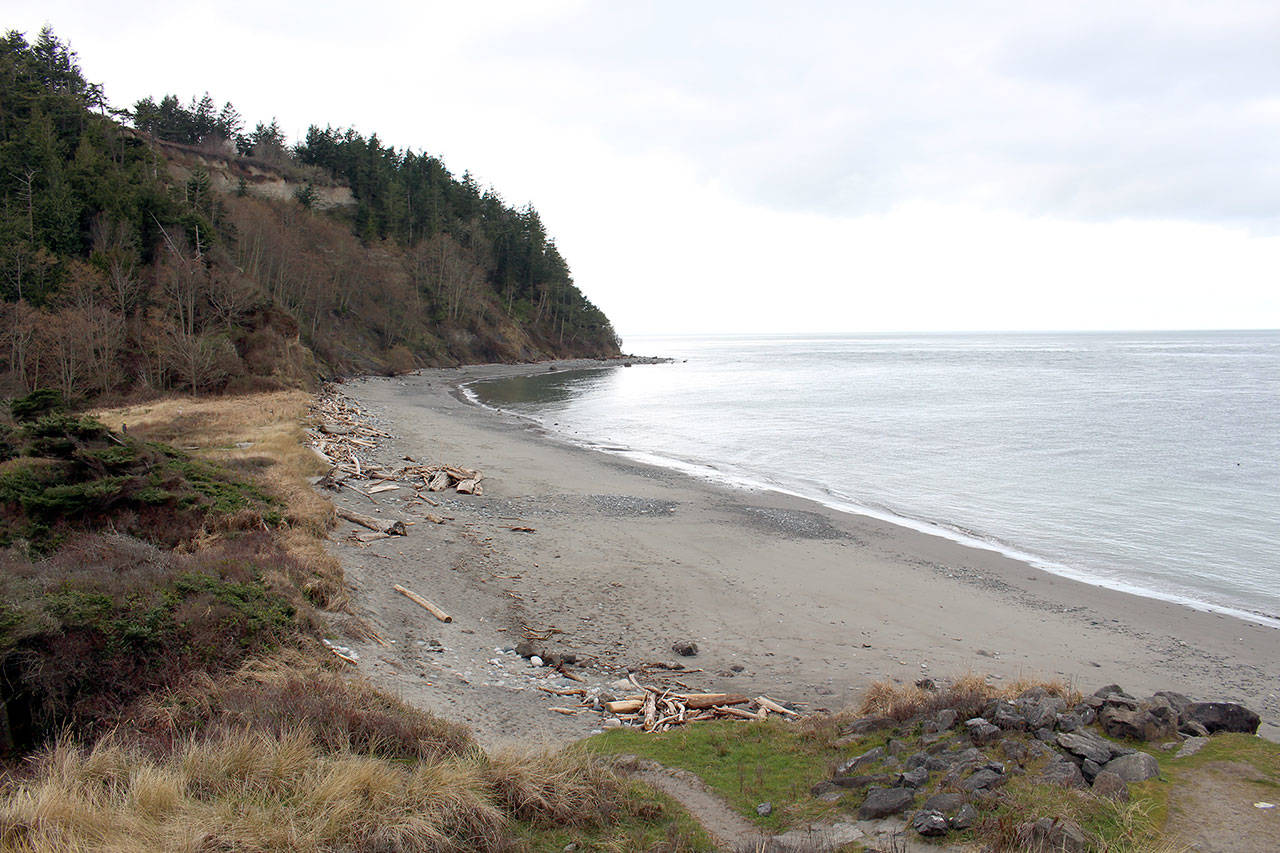PORT TOWNSEND — Washington State Parks is accepting public comment now about a request for permits to use 29 state parks for sporadic navy SEAL training, an idea strongly opposed by the The Whidbey Environmental Action Network.
The Navy has used five state parks — including Fort Flagler and Mystery Bay in Jefferson County — for the last five years for this special forces training.
Officials want to expand to include more parks so that the Sea, Air and Land Forces (SEAL) teams will have to adapt to new environments each time, the Navy said.
Among the additional parks are Fort Townsend, Fort Worden, Shine Tidelands and Dosewallops in Jefferson County and Sequim Bay State Park in Clallam County.
More information about the request for permits from the state parks system can be found at www.parks.state.wa.us/1168/Navy-training-proposal.
Public comment regarding the proposal can be given in person at the next Washington State Parks commissioners’ meeting at 12:45 p.m. March 12 Campbell’s Resort, 104 W. Woodin Ave., in Chelan or at meeting specifically designed to discuss the request at Fort Worden in the evening on May 6, a meeting for which a specific time has not yet been set.
Written comment can be submitted online at www.tinyurl.com/PDN-NavyTraining or mailed to Washington State Parks and Recreation Commission, c/o Becki Ellison, P.O. Box 42650, Olympia, WA 98504-2650.
The previous trainings have had no adverse impacts on the parks, said Anna Gill, state parks communication director.
“We haven’t had any complaints from the public from these trainings,” Gill said.
The training events can take from two to 72 hours and 37 have been conducted in the last five years, said Sheila Murray, Navy Region Northwest Deputy Public Affairs.
Other parks the Navy has used in the past are Blake Island, Illahee and Scenic Beach state parks.
In addition to parks on the North Olympic Peninsula, the Navy also is seeking permits to use Manchester, Pacific Pines, Cama Beach, Salsbury Point, Camano Island, Cape Disappointment, Deception Pass, Grayland Beach, Joseph Whidbey, Skagit Island Marine, Fort Casey, Twin Harbors, Fort Columbia, Leadbetter, Westhaven, Fort Ebey, South Whidbey, Westport Light and Triton Cove state parks.
The Whidbey Environmental Action Network (WEAN) opposes the permits and has a petition on Change.org (www.tinyurl.com/PDN-NavyPetition) with nearly 3,000 signatures as of Friday.
“Everything about this proposal is wrong,” the petition says.
“State parks prohibit the display of guns and other weapons, intimidating and disturbing park employees, volunteers and visitors. The environment is put at risk.
“There is the potential for tragic accidents such as when two military trainees posing as terrorists in North Carolina were shot by an unsuspecting deputy.”
Gill and Murray said that no munitions will be used and the trainings emphasize leaving no trace; the SEALs are graded by how well they accomplish that aspect.
A training event involves about 34 people, with up to eight being trainees. The rest are instructors, medical personnel andother support staff, Murray said.
During a training event, half the support staff is on land and the other half is in the water, she added.
The SEALs start their training in Hawaii, where the water is warmer, tides are calmer, weather more predictable and ground more easily navigated.
Training in the Puget Sound exposes them to rougher waters and terrain, cold water and forces them to adapt to an unknown location, Murray said.
“It’s a completely different type of environment,” she said. “When they’re coming here, they’re coming for advanced level training, so once they’re deployed they could be in a similar situation, so they need to be prepared.”
The state parks do not receive any financial gain from allowing the Navy to use the parks, outside of possible permitting fees, Gill said.
Murray confirmed that it is highly unlikely for the public to see any of the trainees during a training event, as the trainee’s goal is to remain undetected.
They may see the instructors and support staff. If someone does enter the training area, the training is stopped, she said.
“Any evidence that they’ve been there they clean up,” Murray said. “You’ll never know they’ve been there. They can’t leave any trace of any kind, including footprints in the sand.”
WEAN described the training is “essentially war gamin.”
Murray disagreed.
“They’re not war games,” Murray said. “This is for their survival. They need to do this training to survive if they’re ever deployed.”
The applications regarding the trainings and further information on how to view the commission meetings can be found at www.tinyurl.com/StateParkTraining.
________
Jefferson County reporter Zach Jablonski can be reached at 360-385-2335, ext. 5, or at zjablonski@peninsuladailynews.com.

